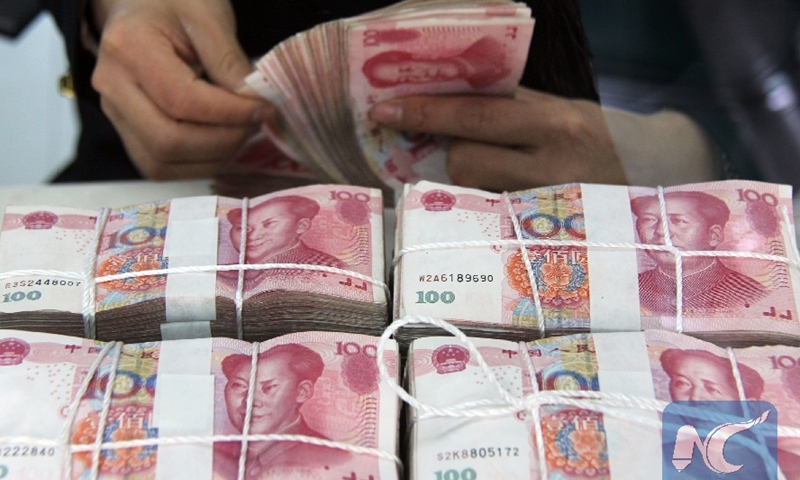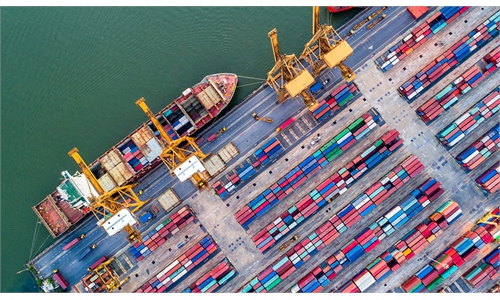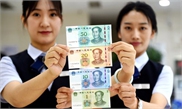There's no proof or need for China's central bank to intervene in the yuan's appreciation: economists
There's no proof or need for China’s central bank to intervene in the yuan's appreciation: economists

File Photo: A worker counts Chinese currency renminbi banknotes at a bank in Tancheng County of Linyi City, east China's Shandong Province, April 11, 2013. Photo:Xinhua
Chinese analysts said there's no evidence or need for the Chinese government to intervene in the yuan's appreciation, refuting overseas media's speculations that the People's Bank of China (PBC), China's central bank, is holding back the yuan's rise.
A message published on Reuters' website on Wednesday noted that the US dollar/yuan central parity rate has been "again slightly higher than expectations", which is a hint that the PBC is obstructing the yuan's appreciation.
The yuan's central parity rate against the US dollar was set at 6.4605 on Thursday, up 64 basis points compared with one day earlier. On Wednesday, the yuan's reference rate against the greenback edged up by 67 basis points at 6.4669.
Several overseas media outlets also raised similar suggestions attributing the PBC's move to cut the forex risk reserve ratio for forward contracts in October 2020 to a "signal" that the PBC is not happy with the (fast) pace of the yuan'sappreciation.
However, Chinese analysts refuted this speculation, saying that there's no need or proof that the government is intervening in the currency's movement.
Guan Tao, chief global economist at BOC International (China) Co and a former senior official at the State Administration of Foreign Exchange, said that there's no "direct evidence" which shows that the PBC has intervened in the exchange rate market amid the yuan's appreciation.
According to Guan, neither the central bank nor the commercial banks would respond to foreign reserve supply and demand situation very simply, because the market liquidity level is judged by the entire monetary aggregate.
Zhou Yu, director of the Research Center of International Finance at the Shanghai Academy of Social Sciences, said that there's no need for the government to intervene in the yuan's appreciation, because China's exports have been unaffected by the strengthening yuan as a result of cut-off manufacturing in overseas countries. Theoretically speaking, a surging yuan is bad for Chinese exporters.
"Now that China's export situation is robust enough, the government's efforts to push the yuan down further would easily trigger criticisms and discussions, and what is the point of doing that?" Zhou questioned.
He also told the Global Times that the yuan's central parity exchange rate is a result of mixed factors including a basket of currencies and the onshore/offshore yuan. "Its fluctuation, even if unusual, is not necessarily the result of government measures, not to mention that the fluctuation range of the yuan's reference rate has been mild in recent days," he said.
Global Times



